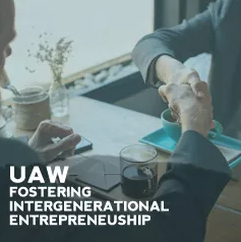"Fostering Intergenerational Entrepreneuship" - Avaliação Externa
Assistente de Investigação
A avaliação externa do projeto "Fostering Intergenerational Entrepreneurship" da Santa Casa da Misericórdia de Lisboa, realizada pelo Dinâmia-CET, é um requisito da call e é um processo que monitoriza todas as etapas do desenvolvimento do projeto. O quadro metodológico identifica: i) Dimensões principais do projeto ; ii) ações a serem desenvolvidas dentro dessas dimensões; iii) indicadores para avaliação de ações; e iv) técnicas a serem utilizadas para a recolha de dados. O envolvimento dos atores sociais, além dos participantes, que são relevantes para o desenvolvimento e sucesso do Projeto, justifica a observação e caracterização do público em geral e a realização de sessões participadas com parceiros. Portanto, três grupos de atores serão considerados: participantes, público em geral e parceiros. Os participantes serão consultados (3 questionários e 2 grupos focais) durante as diferentes fases do experimento social para obter informações relacionadas ao perfil, expectativas, opções e ações desenvolvidas durante o projeto. Os parceiros estarão envolvidos em 2 grupos focais que visam o debate dos objetivos, evolução, resultados e desenvolvimentos futuros do projeto em relação ao projeto de políticas públicas. O público em geral será considerado para avaliar a eficácia da disseminação e a incorporação do Projeto em domínio público. O cadastro público em eventos e a referência do Projeto por media e redes sociais contribuirão para a consecução desse objetivo.
Informação do Projeto
2013-12-01
2015-07-31
Parceiros do Projeto
- DINAMIA'CET-Iscte (GEC)
- Gulbenkian - (Portugal)
- CML - (Portugal)
- Beta I - (Portugal)
- LCF - (Espanha)
- BJF - (Estados Unidos da América)
- UCardiff - (Reino Unido)
TESS - Transition to an environmentally sustainable energy system - The role of technology-intensive firms in the commercialisation of emerging energy technologies
Assistente de Investigação
Project goals: This project addresses the role of emerging energy technologies in the transition to an environmentally sustainable paradigm. It focuses on the functions played by new technology-intensive firms (NTIFs) - academic or corporate spin-offs - in the process of developing research-based renewable energy technologies, and introducing them into the market, as well as on their interactions with other key actors.Methodology:Using a combination of qualitative and quantitative methods, we will address the commercialization process of new technologies, with a view to understanding:1) the role of firms originating from academic institutions or from established companies in the market introduction of renewable energy technologies;2) the type of alliances and networks they establish and the nature and behaviour of other actors they engage with (research organizations; large energy established firms, etc.);3) the impact of policies, through incentives or through the creation of a legal framework and technical infrastructures and norms;4) the impact of institutional changes, both policy induced and deriving from social behaviour changes. Our final objective is thus to uncover the roles that emerge as a result of the strategies identified their relative prevalence and the specific configurations they assume in the energy area. The impact of particular institutional contexts will be assessed through international comparisons (with Netherlands and UK). This will enable us to typify the roles played by NTIFs in the transition to a sustainable energy regime. The results of this project will contribute to on-going research on how to achieve a regime shift, as well as to an understanding of how these processes are taking place in the Portuguese energy system, providing insights to policy formulation and supporting collective action by environmentally active social groups.
Informação do Projeto
2011-03-15
2014-09-14
Parceiros do Projeto

 English
English


